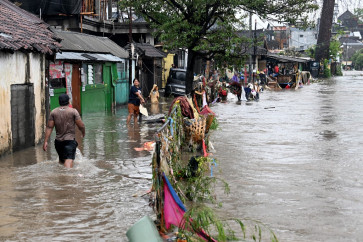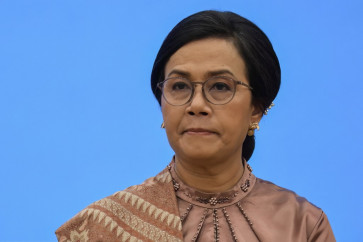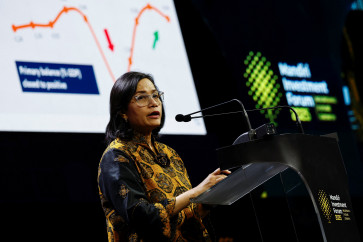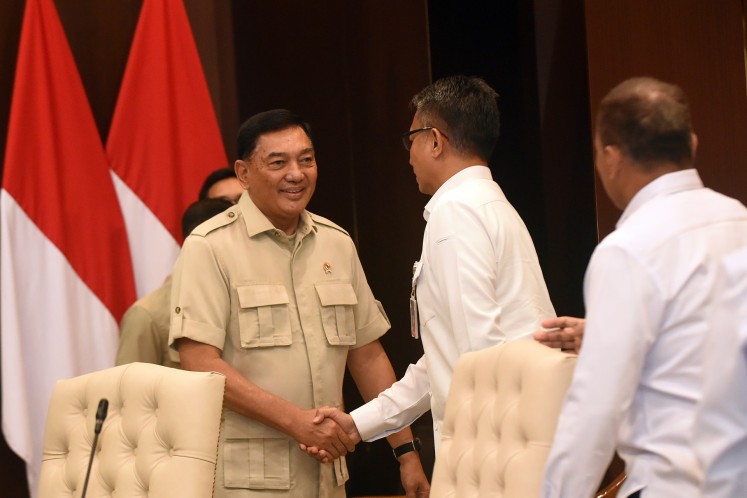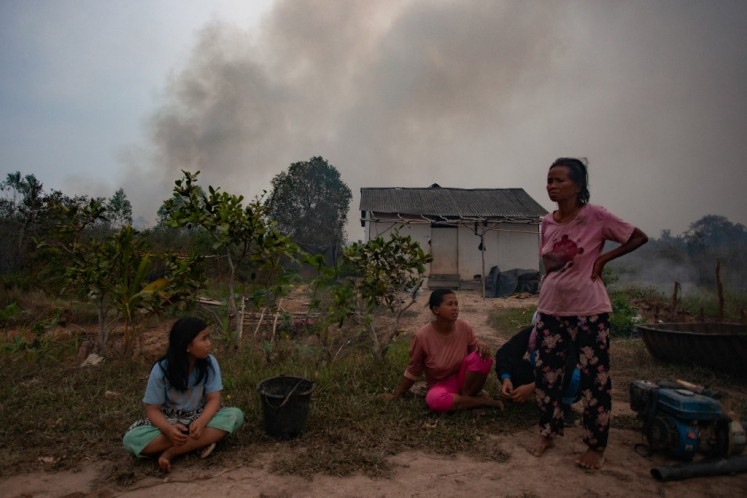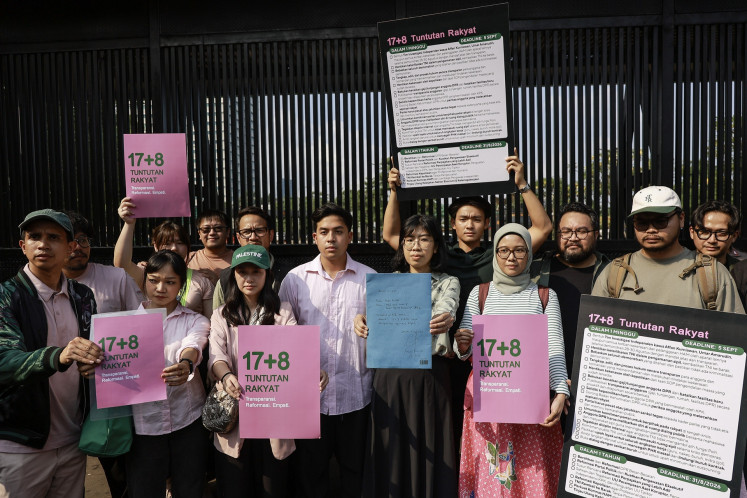Popular Reads
Top Results
Can't find what you're looking for?
View all search resultsPopular Reads
Top Results
Can't find what you're looking for?
View all search resultsCourt rules in favour of major parties
Dismissed: Indonesian Solidarity Party (PSI) chairwoman Grace Natalie attends a hearing on the Elections Law at the Constitutional Court in Jakarta on Thursday
Change text size
Gift Premium Articles
to Anyone
D
span class="caption">Dismissed: Indonesian Solidarity Party (PSI) chairwoman Grace Natalie attends a hearing on the Elections Law at the Constitutional Court in Jakarta on Thursday. The court rejected the party’s challenge of the presidential threshold requirement.(JP/Dhoni Setiawan)
The Constitutional Court has upheld the threshold for political parties seeking to nominate a candidate to contest the 2019 presidential election, in a ruling that is deemed a victory for major parties.
After a series of hearings in a judicial review on the so-called presidential threshold, the court rejected on Thursday a petition to scrap Article 222 of the 2017 Elections Law, though two of nine justices offered dissenting opinions in the case.
In its ruling, the bench argued that the threshold was a legal policy in electoral contests that aimed to simplify the multiparty system and to strengthen the country’s presidential system, as mandated by the Constitution.
Justice Maria Farida said the court had already shown its stance on the matter in a ruling on a similar article of the 2008 Elections Law in 2009, when it ruled that the required minimum percentage of the vote or the number of House seats for a party or coalitions of parties to nominate a presidential candidate was a legitimate policy.
“The petitioners’ request regarding the threshold requirement for political parties to nominate presidential candidates stipulated under Article 222 has no legal basis,” she said.
Article 222 of the law stipulates that a party or coalition of parties must secure at least 20 percent of the seats in the House of Representatives or 25 percent of the popular vote to field a presidential candidate for the 2019 election.
The petitioners — including the Idaman Party, the Crescent Star Party (PBB), the Association for Elections and Democracy (Perludem) and several activists — filed five separate petitions with the court last year, shortly after President Joko “Jokowi” Widodo endorsed the elections bill on Aug. 16.
They argued the article restricted people in exercising their constitutional right to nominate a candidate and violated the Constitution. The threshold also favors major political parties that have secured votes in the 2014 legislative elections.
Perludem executive director Titi Anggraini and PBB chairman and legal expert Yusril Ihza Mahendra expressed disappointment with the ruling, claiming that maintaining the threshold was not in line with the Constitution.
The two dissenting justices, Saldi Isra and Suhartoyo, concurred with the plaintiffs, saying the requirement was no longer relevant, since the 2019 legislative and presidential elections would be held simultaneously.
“Using a presidential threshold [based on] the outcome of the [2014] legislative elections is no longer relevant, and maintaining it means to maintain something unconstitutional,” Suhartoyo said.
Saldi, meanwhile, said the presidential threshold could indeed see a president elected who had strong political support. However, he warned that, should the majority of parties at the House support the President, the presidential system could be easily turned into an authoritarian regime.
The 20- and 25-percent thresholds were supported by the ruling coalition, which includes the Indonesian Democratic Party of Struggle (PDI-P), the Golkar Party, the National Awakening Party, the NasDem Party and the Hanura Party.
Dadang Rusdiana, the secretary of Hanura, the smallest faction at the House with only 16 seats (2.9 percent), said the court’s ruling benefited parties with many seats.
Constitutional law expert Feri Amsari said there was still a chance for small parties to topple the threshold by challenging the article at the Constitutional Court. However, Feri said the argument would need to be stronger, such as to request that the court assess whether the implementation of the previous threshold was already constitutional or not.


